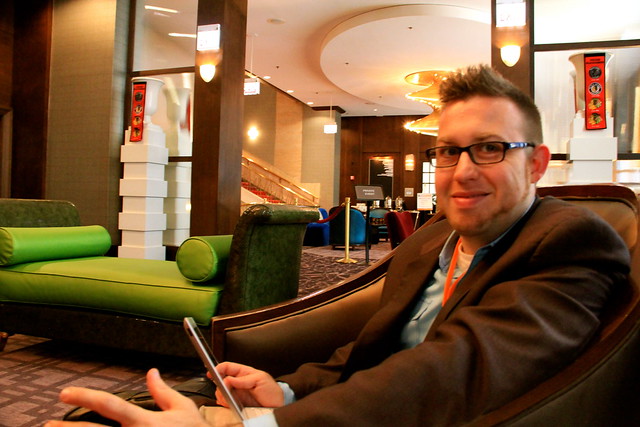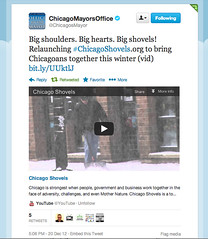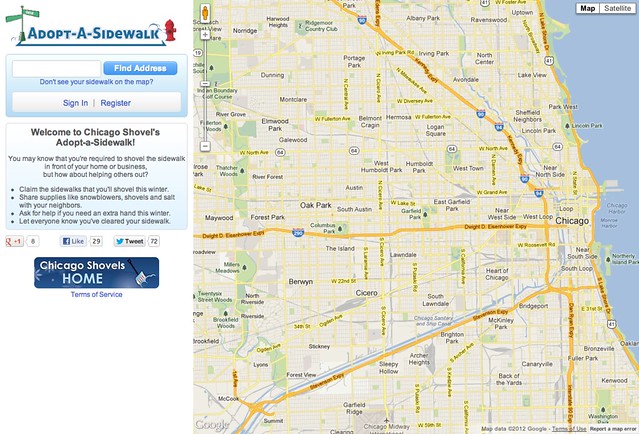Christopher Whitaker, a researcher, writer, and organizer for the Smart Chicago Collaborative, is being named a Champion of Change for Civic Hacking this morning at the White House.

The White House Champions of Change program was created as part of President Obama’s Winning the Future Initiative. Through this program, the White House highlights individuals, businesses, and organizations whose extraordinary stories and accomplishments positively impact our communities.
Here’s the note on Christopher from a White House press release:
Christopher Whitaker, Project Management Consultant at the Smart Chicago Collaborative
Chicago, ILChristopher Whitaker is a project management consultant at the Smart Chicago Collaborative, utilizing his experience in government and community organizing to advance civic innovation in Chicago. Whitaker also serves as the Chicago Brigade Captain for Code for America, supporting civic hacking events and teaching a weekly Civic Hacking 101 class. He is a graduate of DePaul University (MPA) and Sam Houston State University (BA, Political Science). Previously, Whitaker served with the US Army in Iraq as a mechanized infantryman.
The entire program, which focuses on both Open Government and Civic Hacking, is being streamed live this morning starting at 9AM Central time.
Today marks the third time that a Smart Chicago person has been named a Champion of Change. Prior to today, the most recent was Advisory Committee member John Tolva, recognized for local innovation.
We’re super-proud of Christopher and really grateful for the work he’s done here in Chicago, both on his own and as a member of the Smart Chicago team. His signal accomplishment in this domain revolves around his work around the National Day of Civic Hacking. He lead our efforts to help pull of three huge events. Chicago was the most active city with 412 people taking part in events at Cibola, 1871, and the Adler Planetarium.
Forest Gregg and Derek Eder of DataMade, two of the leading lights in civic hacking anywhere, have also been invited to participate in today’s event at the White House. Their Councilmatic Chicago is without a doubt the best piece piece of finished work that was launched on the NDoCH. Arfon Smith, Director of Citizen Science for the Adler Planetarium, was also invited as a citizen hacking star. Chicago is lucky to have them represent us in the nation’s capitol.
Head on over to Twitter and congratulate Christopher for this great recognition!







